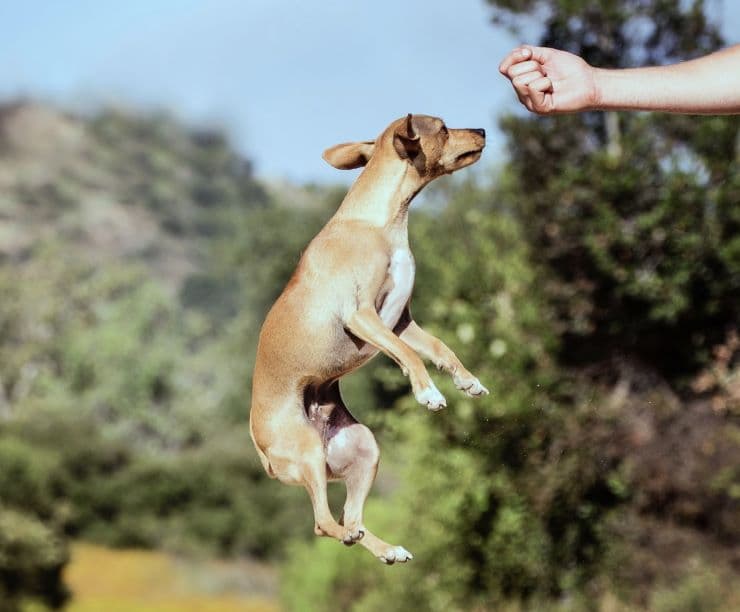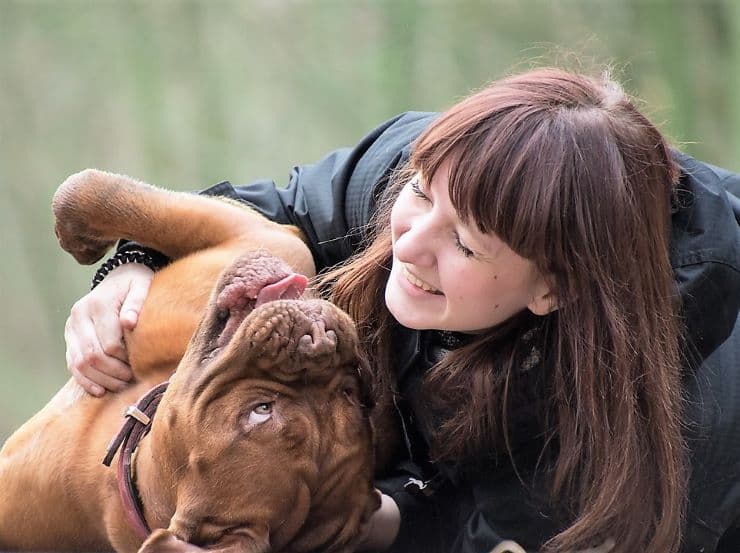It is no surprise that inquiries are frequently posed about the reason dog owners fail to properly train their pets taking into account the enormous number of badly behaved dogs. There are several factors that contribute to the failure of training and one of the most important is the incorrect way of rewarding the dog.
Inexperienced dog owners frequently underestimate the amount of effort and dedication required to effectively train a dog. It is not enough to just reward your pet with dog treats whenever it follows your orders because this could give it an erroneous sense of entitlement, similar to how a child will become spoiled if you give in to all of its demands.

Photo Credit: JenRegnier/Pixabay
So what is the correct way to give your dog a reward when you are teaching him?
Stick to the following rules if you want to develop a strong foundation when it comes to training your puppy so that you can avoid unpredictability and poor behavior in the future.
Keep Your Word
When it comes to training a dog, consistency is absolutely essential.
Confusion is the result of inconsistencies. The path to clarity is paved with consistency.
You have undoubtedly already been exposed to the anecdote of Pavlov's dogs, which serves as an example of the psychological phenomena known as classical conditioning. When Ivan Pavlov was conducting research on digestion in dogs, he found that the dogs he was researching would start salivating even when they weren't given any food or water.
He made the observation that this unconscious drooling was connected to the presence of one of his coworkers in their white lab coat, which announced the approach of mealtime. It was not the food itself that caused the salivation, but rather the mental link with eating.
The process of connecting a specific behavior with a reward in order to create the connection between the two is known as conditioning. This conditioning is used extensively in various training approaches. The important thing is to consider it in light of the surrounding conditions at all times.
Praise as Positive Reinforcement
Praise should be used as positive reinforcement, and avoidance of negative reinforcement should be practiced.
Every dog is different, and as a result, they all learn at their own pace. The dissatisfaction you feel for a dog that is taking longer to learn how to behave should never be responded with remonstrance, even though it is easy and satisfying to reward and praise a dog that is learning rapidly.

Photo Credit: RebeccasPictures/Pixabay
If you punish your dog for disobeying a command, all that will happen is that the dog will get more confused and afraid, which will in turn cause the dog to act inappropriately. If your dog is slower to learn new commands, you will need boundless patience; yet, maintaining consistency is the most important thing you can do. The use of severe scolding and a harsh voice will accomplish much less than the use of positive affirmation each time achievement is achieved.
The Importance of Playtime
Your dog will become miserable if he or she never gets any playtime. In addition to that, it will make the owner fairly unpleasant as well!
Your dog has a difficult time focusing on anything for long. Your workouts should be broken up into small bursts, and you should be sure to schedule some time for fun in between your more serious sessions.
No matter how you decide to organize your workout, you should always begin with the end in mind and move methodically toward achieving your objective. But make sure to keep things straightforward. It is not a good idea to combine a large number of distinct commands into a single session because this will, once more, just lead to confusion.
Reduce the Incentives Over Time
The rewards are an essential component of the training procedure, and acknowledging and rewarding your dog's obedience at key junctures during the process is crucially important. On the other hand, there will be occasions in which you are not in possession of a reward when you are out and about.
Once your pet has acquired the ability to link successfully completing a behavior with receiving a reward, you will need to gradually break this relationship with the reward. In a nutshell, your dog needs to master the skill of performing the behavior without the expectation of an instant reward.
Take things slowly as you go. If everything were to be removed at once, this would result in confusion once more. Start to incorporate the occasional "training session" in a variety of settings, and when the dog displays the desired behavior, praise them verbally rather than giving them a physical dog treat as a reward.
Your efforts will soon be rewarded in the form of a content and well-adjusted pet dog for you!
Also View: Top Dog Training Courses Available Online (2023-2024)
Leave a Reply